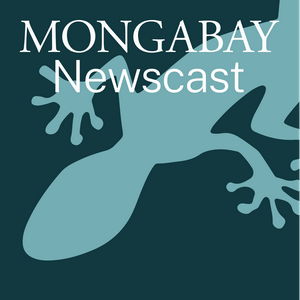Media outlets are downsizing newsrooms and the audience for traditional news is in decline, but Mongabay continues to grow thanks to its impact-driven, nonprofit model. Mongabay's director of philanthropy, Dave Martin, joins the podcast this week to explain the philosophy behind Mongabay's fundraising efforts, why the nonprofit model is essential for impact-driven reporting, and how the organization ensures editorial independence. " Those who fund us and read us, they're really expecting real-world impact and high-quality journalism. So, people are coming back to Mongabay because they're interested in what we're reporting on. There's a really high level of quality that is informing their decisions," he says. Subscribe to or follow the Mongabay Newscast wherever you listen to podcasts, from Apple to Spotify, and you can also listen to all episodes here on the Mongabay website. Dave can be reached at
[email protected] or on LinkedIn. Image Credit: Galapagos tortoise, Ecuador. Photo by Rhett Butler/Mongabay. ----- Timecodes (00:00) Dave’s story (08:50) Why nonprofit news creates impact (15:08) Funding and ethical considerations (23:27) Explaining trust-based philanthropy (29:10) Reflections on the Los Angeles wildfires (32:19) Dave’s favorite animals

